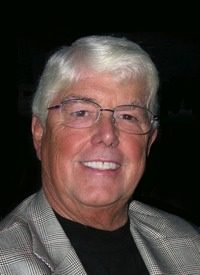
What was it all about? Apparently, a huge number of parents in Harlem believe the quality of education their children are getting is more important than the color of the skin of their teachers. They were demanding better schools — even if that meant a bunch of black teachers lost their jobs.
You won’t be surprised to learn that many of our inner-city schools do a terrible job of educating the young people entrusted to them. More than half of the children who start first grade in inner-city schools drop out before they graduate. Many of those who do make it through 12 grades can’t read above a see-Spot-run level. Nor can they do such simple math as making change for a purchase of a Big Mac and fries. No wonder the graduates of inner city schools are virtually unemployable.
Officials in New York City decided to do something about this sorry situation. They announced plans to close 22 of the worst-performing schools in the city. That was enough to get the teacher’s union riled up. But what really put the union on the warpath was when those same city officials said they would permit charter schools to operate in some of the buildings that would soon be vacant.
But charter schools don’t hire members of the teacher’s union. They don’t guarantee teachers jobs for life or steady increases in pay and benefits every year, no matter how badly the teachers do their jobs. Charter-school teachers get paid based on results — not on tenure or political clout.
Of course, all of this is completely unacceptable to the United Federation of Teachers. No wonder union members went ballistic when they heard about the plan. They were simply protecting their turf. After all, the teachers’ union had demonstrated for years that for them, jobs were job one. Political clout ran a close second. Children’s education was not worth worrying about.
This situation is nothing new. Many years ago, the most powerful leader the teachers’ union ever had, Albert Shanker, was honest enough to admit: “When schoolchildren start paying union dues, that’s when I’ll start representing the interests of schoolchildren.”
Hey, he who pays the piper calls the tune. I get that.
And that, my friends, explains why the National Association for the Advancement of Colored People has aligned itself with the United Federation of Teachers. The NAACP cares more about the jobs of black members of the teachers union — and in New York City that’s a lot of jobs, folks — than they do about the education of children.
So now you understand why thousands of black parents took to the streets of Harlem last month. Will they make a difference? Not if Hazel Dukes, president of the NAACP in New York, has her way. Dukes said the parents “can march and have rallies all day long…. We will not respond.”
The teachers’ union and the New York State chapter of the NAACP have filed suit to stop the city from closing those 22 schools or allowing any charter school to operate in any building occupied by a traditional public school.
Will the officials stick to their guns? Or will they cave from the pressure brought by two of the most powerful entities in the State: the teachers’ union and the NAACP?
I wish I could predict a happy outcome. But I suspect that, once again, the right thing to do will be sacrificed on the altar of political expediency.
Meanwhile, what sort of education are the children in your area getting? What percentage of kids who enter the first grade graduate from high school? And of those who do, how well can they read, write, and do basic arithmetic?
It’s been a long time since Why Johnny Can’t Read was a national bestseller. But the problem and the solution to the problem haven’t changed. Fire bad teachers. Pay good teachers more. Get the politicians and bureaucrats out of the way.
And if you really want to see some positive changes in our schools, end the monopoly by union thugs and their political buddies. Open up education to competition. Give more money to those who do a better job and less to those who don’t or can’t.
Sure, there would be weeping, wailing, and gnashing of teeth from one end of this country to the other. But it wouldn’t come from most students, since they know they are being used by people who really don’t give a hoot about them.
Until next time, keep some powder dry.
Chip Wood was the first news editor of The Review of the News and also wrote for American Opinion, our two predecessor publications. He is now the geopolitical editor of Personal Liberty Digest, where his Straight Talk column appears weekly. This article first appeared in PersonalLiberty.com and has been reprinted with permission.


